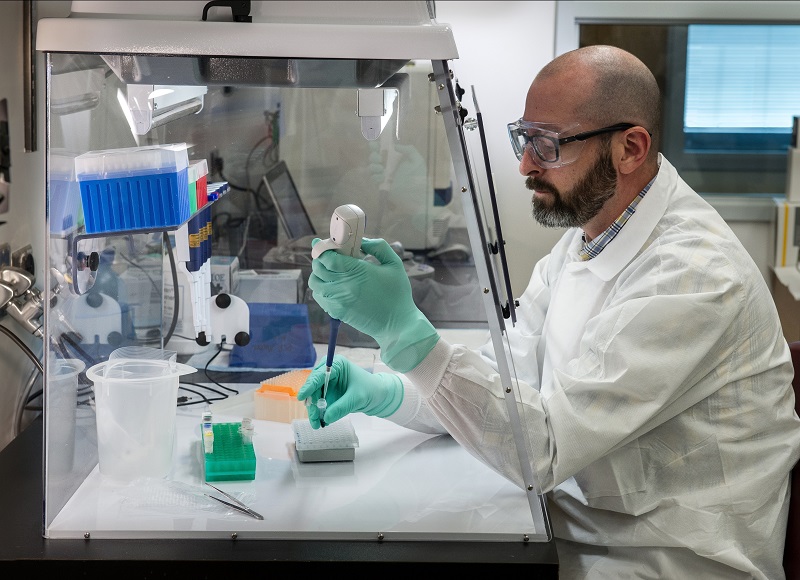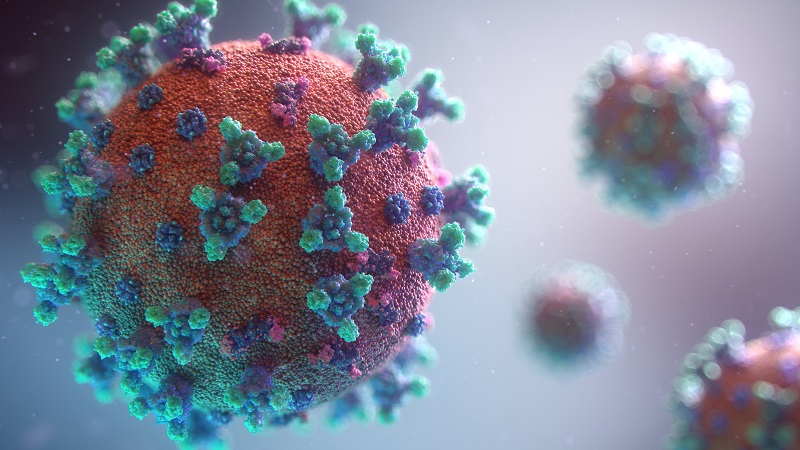 White Hat Link Building – Safe. Powerful. Long-Term.
White Hat Link Building – Safe. Powerful. Long-Term.
Chaperone proteins play a role in cancer spread
Written by creativebiomart » Updated on: June 17th, 2025 468 views

Surprising results from a study led by scientists at the University of Southern California provide new insights into how cancer cells metastasize and also suggest new treatments to stop the spread.
The NIH-supported research focused on a cellular chaperone protein called GRP78, also known as BiP, that helps regulate the folding of other proteins. The team was led by Amy S. Lee, Ph.D., professor of biochemistry and molecular medicine at the Keck School of Medicine of USC. Built on previous work, using techniques such as confocal microscopy and mRNA knockdown, the researchers showed that GRP78, normally found in the endoplasmic reticulum (ER) of cells, can also travel to the nucleus during cellular stress, where it regulates gene expression and pathways that ultimately make cancer cells more aggressive.
"It was a complete surprise to find that GRP78 controls gene expression in the nucleus," said Lee, the study's senior author and the Judy and Larry Freeman Chair in Basic Science Research at the USC Norris Comprehensive Cancer Center. This is a novelty that, to the best of my knowledge, has not been observed before." The discovery could represent a paradigm shift in cell biology and have implications for cancer treatment research. Lee and colleagues published their findings in the Proceedings of the National Academy of Sciences (PNAS), titled "ER chaperone GRP78/BiP translocates to the nucleus under stress and acts as a transcriptional regulator," in which they obtained concluded, "Our study reveals a mechanism by which cancer cells respond to ER stress through nuclear GRP78-mediated transcriptional regulation to adopt an aggressive phenotype."
The authors note that chaperones are increasingly recognized as master regulators of cellular homeostasis in health and disease. The chaperone protein GRP78, encoded by the HSPA5 gene, is a member of the heat shock protein 70 (HSP70) protein family. Unlike other cytoplasmic HSP members, GRP78 contains a signal sequence that targets it to the ER. As a major endoplasmic reticulum chaperone, GRP78 plays a key role in folding and processing membrane-bound or secreted proteins. Previous research by Lee's team has also shown that when cells are stressed by COVID-19 or cancer, GRP78 is hijacked, allowing the viral invaders to replicate and the cancer to grow and resist treatment.
Through their new study, the USC researchers unexpectedly discovered that when cells are stressed, GRP78, which is "commonly overexpressed in cancer cells," migrates to the nucleus, where it alters gene activity and alters the cell's behavior, making cancer cells more mobile and aggressive.
The new discovery was initially made by accident. Ze Liu, PhD, a postdoctoral fellow in Dr. Lee's lab and first author of the study, was analyzing how GRP78 regulates a gene called EGFR, which has long been implicated in cancer. Liu found something surprising: GRP78 controls the gene activity of EGFR, which raises the intriguing possibility that although GRP78 has long been thought to reside primarily in the cell's endoplasmic reticulum, chaperones may have entered the nucleus and taken on new roles.
To confirm their hypothesis, Liu, Lee, and colleagues used confocal microscopy, which provides high-resolution 2D and 3D imaging, coupled with advanced techniques for capturing live-cell images, to directly observe GRP78 in the nuclei of lung cancer cells, as well as normal cells under stress.
The researchers are also starting to learn more about what happens inside the cell after GRP78 enters the nucleus. Using a sophisticated RNA-sequencing method, they compared lung cancer cells that overexpressed GRP78 in their nuclei with cells lacking GRP78 in their nuclei to help figure out which genes were affected. "To our great surprise, we found that the key genes regulated by GRP78 in the nucleus are mainly related to cell migration and invasion," Lee said. "This study reveals the molecular mechanism by which cancer cells respond to stress through the nuclear translocation of GRP78/BiP, which acts as a transcriptional regulator that allows cells to adopt an aggressive phenotype and influences other pathways." They also noted that GRO78 is upregulated in multiple cancers and is associated with aggressive growth, invasiveness and treatment resistance.
They used several techniques, including biochemical analysis and mRNA knockdown of GRP78, which allowed them to identify the signal within GRP78 that allows it to enter the nucleus and confirm that when GRP78 is present in the nucleus, it stimulates the activity of the EGFR gene. EGFR is known to play multiple roles in tumorigenesis, proliferation, survival and metastasis of many different types of cancer, including lung cancer. "We found that GRP78 knockdown consistently suppressed EGFR protein expression levels in multiple human lung cancer cell lines with varying EGFR mutation and amplification status," they wrote. When they looked at a gene expression database of more than 200 different human lung cancer cell lines, they found a statistically significant positive correlation between GRP78 and EGFR transcript levels.
Their results showed that GRP78 binds to another cellular protein, ID2, that normally represses genes, including EGFR, many of which allow cell migration. But when bound to GRP78, ID2 can no longer function. Nuclear GRP78 can regulate the expression of genes and pathways, especially those important for cell migration and invasion, through its interaction with and repressive activity of the transcriptional repressor ID2. Without ID2 transcriptional repression the activity of these factors makes cancer cells more aggressive. Interestingly, the researchers note, "ID2 has recently been reported to function as a tumor suppressor in lung cancer by affecting cancer cell invasion and migration."
The new results point to several potential cancer treatments, including downregulating the activity of GPR78 to inhibit EGFR in lung cancer, or preventing GRP78 from binding to ID2. They also comment that their findings suggest that GRP78/BiP inhibitors may offer a therapeutic approach to inhibit EGFR in various human lung cancer cells without restriction to specific mutations.
While the current study analyzed lung cancer cells, GRP78 plays a similar role in various types of cancer, including pancreatic, breast and colon cancers. Therefore, it is also possible that GRP78 binds to other proteins in the nucleus that are critical to cancer, opening up a new avenue of research in cancer biology. "Furthermore, there may be other interacting partners of nuclear GRP78 besides ID2, as well as other mechanisms yet to be explored," they point out.
Lee and her team are also investigating drugs that inhibit the expression or activity of GRP78. One of their ongoing studies suggests that small molecules that inhibit GRP78, such as YUM70, may even be able to block the activity of GRP78 in the nucleus.
Note: IndiBlogHub features both user-submitted and editorial content. We do not verify third-party contributions. Read our Disclaimer and Privacy Policyfor details.
Copyright © 2019-2025 IndiBlogHub.com. All rights reserved. Hosted on DigitalOcean for fast, reliable performance.











